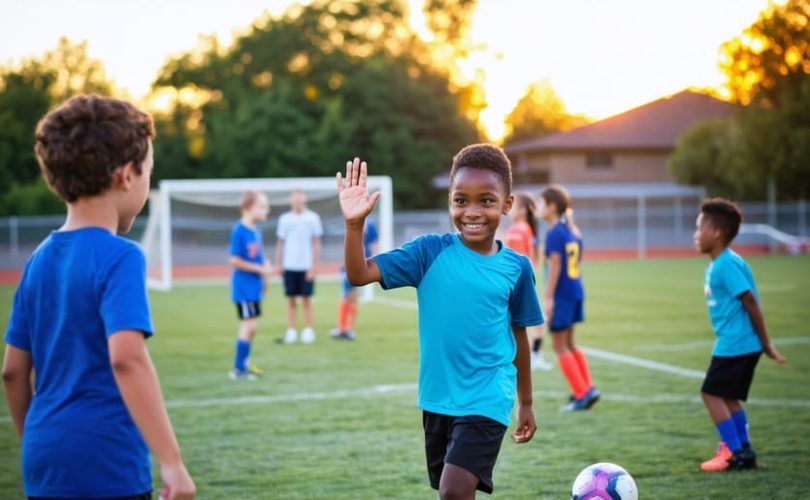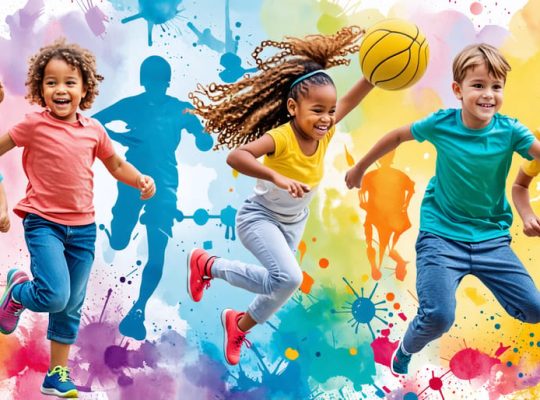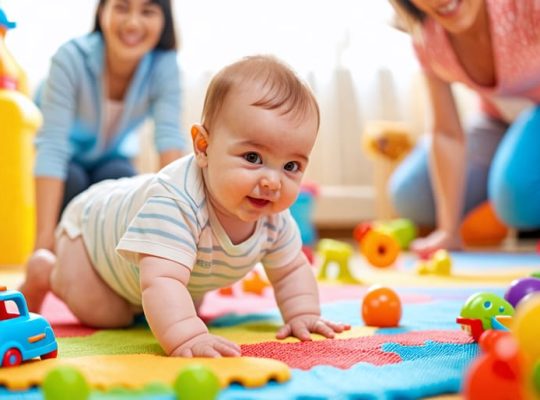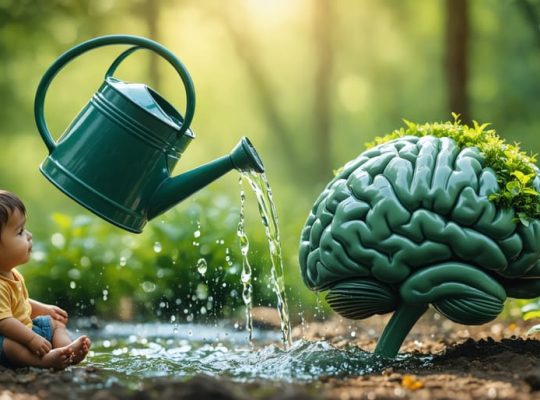From the neighborhood soccer field to the school gymnasium, sports serve as powerful catalysts in shaping our children’s futures. As parents and educators witness the remarkable benefits of exercise and organized athletics, research consistently reveals that youth sports participation extends far beyond physical fitness. These activities forge resilient minds, build confident personalities, and cultivate essential life skills that resonate well into adulthood.
When a child steps onto the playing field, they’re not just learning game rules – they’re entering a dynamic laboratory of personal growth. Here, teamwork transforms into leadership skills, losses become lessons in resilience, and daily practice shapes the discipline that will serve them in every aspect of life. From enhanced academic performance to stronger emotional regulation, the impact of sports touches every cornerstone of youth development.
As we explore the profound influence of athletic participation on young minds and bodies, we’ll uncover how structured physical activity creates well-rounded individuals ready to tackle life’s challenges. Whether your child dreams of athletic excellence or simply needs a healthy outlet for energy, sports offer an unparalleled platform for holistic development.
Building Emotional Resilience Through Sports
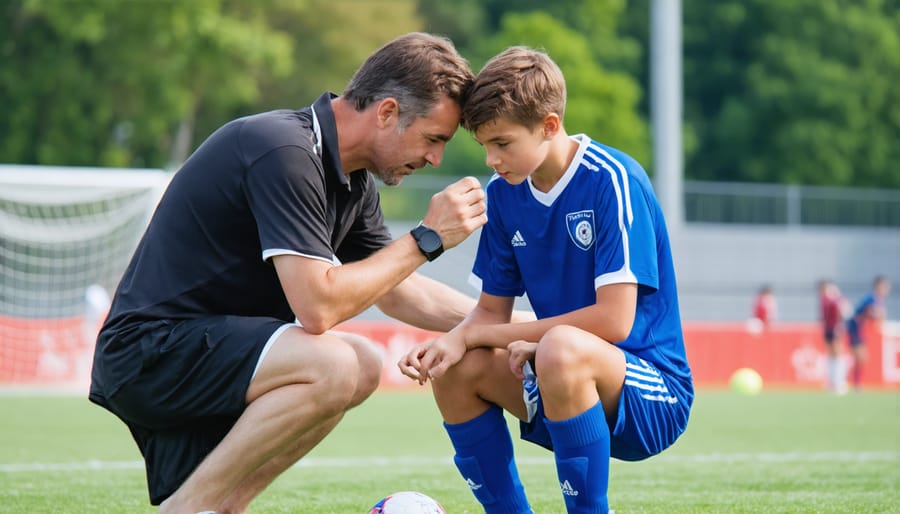
Managing Victory and Defeat
Sports provide children with valuable opportunities to experience both victory and defeat in a controlled environment, helping them develop crucial life skills. As Lisa Thompson, a youth sports psychologist, explains, “These experiences serve as dress rehearsals for handling life’s future successes and setbacks.”
When children win, they learn to celebrate achievements while showing respect for opponents. This helps develop humility and sportsmanship, essential qualities that extend beyond the playing field. Parents and coaches can guide young athletes to acknowledge their teammates’ contributions and appreciate the effort that led to success, rather than focusing solely on the outcome.
Equally important is learning to cope with defeat. Through sports, children discover that losing is a natural part of life and doesn’t define their worth. Sarah Martinez, a youth soccer coach of 15 years, shares, “I’ve seen kids transform their perspective on failure, viewing it as feedback rather than a final verdict.”
To help children process defeat constructively, encourage them to:
– Reflect on what they learned from the experience
– Identify areas for improvement
– Recognize and appreciate their effort
– Support teammates who might be struggling
– Set new goals based on the experience
Through proper guidance, these sporting moments become valuable lessons in resilience, helping children develop a healthy perspective on competition and self-worth that serves them well throughout life.
Stress Management Skills
Participating in sports provides young athletes with valuable tools for managing stress, both on and off the field. Through regular athletic activities, children learn to handle pressure situations in a structured environment, developing coping mechanisms that serve them well throughout their lives.
Dr. Sarah Chen, a child psychologist specializing in youth sports, explains, “When children face challenging moments in sports, like taking the final shot or competing in a championship game, they’re actually building their stress resilience toolkit. These experiences teach them how to remain calm under pressure.”
Sports naturally create opportunities for children to practice deep breathing, positive self-talk, and visualization techniques. A young soccer player learning to take deep breaths before a penalty kick, for instance, is simultaneously developing a valuable stress management skill that can be applied to test-taking or public speaking.
Team sports also offer built-in support systems where children can share their concerns and learn from peers and coaches. “My 12-year-old daughter used to get overwhelmed before swim meets,” shares parent Maria Rodriguez. “But her coach taught the whole team meditation techniques, and now she uses those same strategies to calm herself before school presentations.”
Additionally, the physical activity itself serves as a healthy outlet for stress relief, releasing endorphins and providing a positive way to channel nervous energy. This natural stress-reduction method becomes a lifelong tool for emotional regulation and mental well-being.
Social Skills and Team Building
Communication and Leadership
Sports provide a unique platform for young athletes to develop essential communication and leadership skills that extend far beyond the playing field. Through team sports, children learn to express themselves clearly, listen actively, and work collaboratively with their teammates and coaches.
On the field, players must constantly communicate both verbally and non-verbally. Whether it’s calling for a pass, signaling a play, or coordinating defensive positions, these interactions help children develop natural communication habits. As Sarah Thompson, a youth sports psychologist, notes, “The dynamic nature of team sports creates countless opportunities for children to practice real-time communication under pressure.”
Leadership skills naturally emerge as children take on different roles within their teams. Some might become team captains, while others lead by example through their work ethic and positive attitude. These experiences teach young athletes how to motivate others, resolve conflicts, and make quick decisions – all valuable skills that transfer to academic and social settings.
Through sports, children also learn to read body language and facial expressions, enhancing their emotional intelligence. They develop the ability to recognize when a teammate needs encouragement or when to step back and let others take the lead. These non-verbal communication skills are particularly valuable for children who might be naturally shy or reserved.
Coach Michael Rodriguez, with 15 years of experience in youth sports, shares, “I’ve watched countless kids transform from quiet observers to confident leaders through their participation in team sports. The communication skills they develop here become lifelong tools for success.”
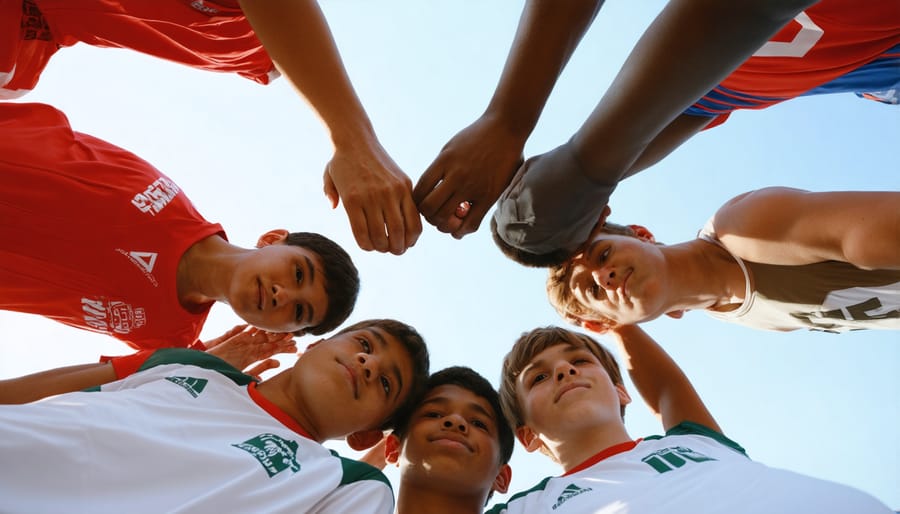
Building Lasting Friendships
One of the most profound benefits of youth sports participation is the formation of deep, meaningful friendships that often last a lifetime. When children join sports teams, they’re immersed in an environment that naturally cultivates social bonds through shared experiences, challenges, and victories.
Dr. Sarah Chen, a child psychologist specializing in youth development, notes that “team sports create unique opportunities for children to develop trust and mutual support. These relationships often become stronger than typical playground friendships because they’re forged through both triumph and adversity.”
Through regular practice sessions, game-day experiences, and team activities, young athletes learn to rely on each other and develop genuine connections. Take 12-year-old Marcus, who was initially shy when he joined his local soccer team. Within months, he had developed close friendships with teammates who shared his passion for the sport and understood his journey of improvement.
Sports provide natural conversation starters and shared interests that help break down social barriers. Children learn to communicate effectively, support each other during challenging moments, and celebrate collective achievements. These experiences teach valuable lessons about loyalty, empathy, and mutual respect.
The friendships formed through sports often extend beyond the field or court. Team members frequently spend time together outside practice, creating bonds that continue through school years and beyond. Many adults report that their closest friends are those they met through youth sports, demonstrating the lasting impact of these early connections.

Self-Esteem and Confidence Building
Goal Setting and Achievement
Sports provide children with a natural framework for learning the vital life skill of goal setting and achievement. When young athletes set targets – whether it’s improving their lap time, mastering a new technique, or helping their team win a championship – they learn to break down big objectives into manageable steps.
Through regular practice and competition, children develop an understanding of the connection between effort and results. They learn that reaching goals often requires persistence, dedication, and the ability to overcome setbacks. A young swimmer who aims to improve their personal best time, for instance, experiences firsthand how consistent practice leads to measurable progress.
Sports also teach children to set both short-term and long-term goals. While they might focus on perfecting their serve in tennis this week, they can simultaneously work toward making the varsity team next season. This dual focus helps develop time management skills and strategic thinking.
Perhaps most importantly, sports provide immediate feedback and tangible results, helping children understand that achievement comes through dedication rather than luck. This learning transforms into valuable life skills that extend far beyond the playing field, preparing them for future academic and professional challenges.
Body Image and Self-Acceptance
Sports play a crucial role in helping young people develop a healthy relationship with their bodies. Through regular physical activity and mental well-being, children learn to appreciate their bodies for what they can do rather than how they look.
When young athletes focus on strength, endurance, and skill development, they begin to view their bodies as powerful tools rather than aesthetic objects. This shift in perspective is particularly valuable during adolescence when body image concerns often peak. Sports help children understand that bodies come in different shapes and sizes, each with unique abilities and strengths.
Katie Martinez, a youth sports psychologist, shares, “I’ve seen remarkable transformations in how young athletes perceive themselves. They stop focusing on ‘looking perfect’ and start celebrating what their bodies can achieve.” This positive relationship with one’s body often extends beyond sports, contributing to better self-esteem and confidence in other areas of life.
For many young athletes, sports provide a healthy counter-narrative to unrealistic body standards promoted in media, helping them develop lasting self-acceptance and body confidence.
Supporting Your Child’s Sports Journey
Finding the Right Sport
Choosing the right sport for your child is a crucial step in fostering their physical and emotional development. As Sarah Chen, a youth sports psychologist, often says, “The best sport for a child is one they genuinely enjoy and feel confident participating in.”
Start by observing your child’s natural interests and physical abilities. Do they prefer individual activities or team settings? Are they drawn to fast-paced action or more methodical movements? Some children thrive in competitive environments, while others prefer recreational activities focused on skill development and fun.
Consider your child’s personality type. A highly energetic child might excel in sports like soccer or basketball, while a more contemplative child might prefer swimming or tennis. It’s essential to match the sport’s demands with your child’s temperament and energy levels.
Age-appropriate activities are crucial. For younger children (ages 4-7), focus on sports that develop fundamental movement skills like running, jumping, and throwing. As they grow older, they can transition to more complex sports that require strategic thinking and advanced coordination.
Involve your child in the decision-making process. Visit different sports programs together and allow them to try various activities. Many organizations offer trial classes or sports camps where children can experience different options without long-term commitment.
Remember that interests change over time, and that’s perfectly normal. Listen to your child’s feedback and be willing to make changes if a particular sport isn’t working out. The goal is to find an activity that promotes both physical health and emotional well-being while keeping your child engaged and motivated.
Most importantly, ensure the chosen sport fits your family’s schedule and resources, making it a sustainable part of your child’s development journey.
Maintaining Balance
While sports can significantly benefit youth development, striking the right balance is crucial for long-term success and well-being. Parents and coaches play a vital role in avoiding sports pressure and creating a healthy athletic environment.
Start by setting realistic expectations and maintaining open communication with your child. Watch for signs of burnout, such as decreased enthusiasm, physical exhaustion, or anxiety about practice and games. If you notice these signs, it’s essential to pause and reassess the situation.
Consider implementing these practical strategies:
– Limit sports participation to 2-3 days per week for younger children
– Ensure at least one full day of rest between intense training sessions
– Encourage participation in multiple sports rather than early specialization
– Make time for non-sports activities and social interactions
– Schedule regular check-ins to discuss your child’s feelings about their sports involvement
Remember that every child develops differently and has unique interests and capabilities. Some might thrive with intensive training, while others prefer recreational participation. The key is to support your child’s individual journey while ensuring their physical and emotional well-being remains the top priority.
Dr. Sarah Chen, a youth sports psychologist, suggests: “Think of sports as one ingredient in a well-balanced childhood recipe. When we focus too heavily on one ingredient, we risk spoiling the entire dish. The goal is to create a nurturing environment where sports enhance, rather than dominate, a child’s development.”
Sports participation offers children and adolescents a powerful foundation for healthy physical, emotional, and social development. Through athletic activities, young people learn essential life skills like teamwork, perseverance, and goal-setting that serve them well beyond the playing field. The evidence is clear: youth who participate in sports typically demonstrate higher self-esteem, better academic performance, and stronger social connections than their non-participating peers.
Parents and educators play a crucial role in fostering positive sports experiences. By emphasizing personal growth over winning at all costs, and supporting young athletes through both victories and setbacks, we create an environment where children can truly thrive. Remember that every child’s journey in sports is unique, and success looks different for each individual.
As we’ve explored throughout this article, the benefits of youth sports extend far beyond physical fitness. From building resilience and emotional intelligence to developing leadership skills and healthy habits, sports provide a comprehensive platform for youth development. However, the key lies in maintaining a balanced, supportive approach that prioritizes fun, learning, and personal growth.
Let’s commit to creating positive sporting environments where young people can discover their potential, build lasting friendships, and develop the confidence to tackle life’s challenges. When implemented thoughtfully and with proper guidance, sports participation becomes an invaluable investment in our children’s future well-being and success.

